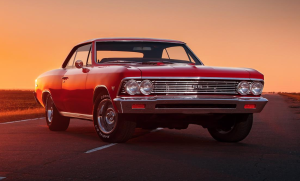Best Ways to Sell or Trade My Car
Posted Monday, Feb 19, 2024

If you’re looking to sell your car to a used car dealership, it makes sense to get quotes from multiple establishments before choosing the highest price. This will give you money to purchase a new vehicle if you need it.
When looking to trade your car, you might be able to exchange it for a better one by paying slightly more or simply swapping it. Deciding between these options is a personal choice contingent on what works best for you.
Let’s explore the best ways to sell or trade your car.
How to Sell Your Car
List Your Car Online
Listing your car online is an effective way to reach a wide audience of potential buyers. Utilize popular online marketplaces such as Craigslist, Facebook Marketplace, or Autotrader to create an appealing listing. Include detailed information about your car, such as its make, model, year, mileage, condition, and any notable features or upgrades. High-quality photos showcasing both the exterior and interior of the car can significantly enhance its appeal to prospective buyers. Be sure to set a competitive price based on market research and the condition of your vehicle.
Prepare Your Car for Sale
Before you can sell your car, you must ensure it is in optimal condition. Start by thoroughly cleaning and detailing both the interior and exterior of the vehicle to make it more attractive to potential buyers. Address any minor cosmetic issues, such as scratches or dents, and consider investing in professional detailing services for a polished finish.
Also, conduct routine maintenance checks to ensure that your car is mechanically sound. This includes checking fluid levels, tire pressure, and brakes and addressing any necessary repairs or servicing. Providing a well-maintained and aesthetically pleasing vehicle can increase buyer confidence and the likelihood of a successful sale.
Negotiate and Finalize the Sale
Once you've generated interest from potential buyers, be prepared to negotiate the terms of the sale. Respond promptly to inquiries and arrange test drives for serious buyers. During negotiations, be flexible but firm on your asking price, considering factors such as market demand, the condition of your car, and any competing offers.
Once you've reached an agreement with a buyer, finalize the sale by drafting a bill of sale that outlines the terms and conditions of the transaction. Be sure to transfer the title of the car to the new owner and complete any necessary paperwork to officially transfer ownership. Finally, collect payment from the buyer, preferably through a secure method such as cash or a cashier's check, and provide them with the keys and relevant documentation for the vehicle.
How to Trade Your Car
Assess Trade-In Value
Before you can trade your car, it's crucial to assess its trade-in value accurately. You can use online valuation tools or consult with multiple dealerships to get an estimate of your car's worth. Factors such as the make, model, year, mileage, condition, and market demand will influence its trade-in value. Be realistic about your car's condition and consider any additional features or upgrades that may increase its value. Keep in mind that trade-in values may vary between dealerships, so it's essential to gather multiple quotes to ensure you're getting a fair offer.
Evaluate Trade-In Offers
Bring your car to multiple dealerships and request trade-in appraisals from each one. Compare the offers you receive, taking into account factors such as the trade-in value, any incentives or promotions offered by the dealership, and the overall buying experience. Consider factors beyond the trade-in value, such as the reputation of the dealership, the selection of vehicles available for purchase, and the quality of customer service provided. Ultimately, choose the dealership that offers the best combination of trade-in value and overall customer experience.
Finalize Trade-In Transaction
Verify that the trade-in value matches the agreed-upon amount and that there are no hidden fees or charges. Be prepared to provide all necessary documentation for the trade-in, including the vehicle's title, registration, and maintenance records. Once the paperwork is complete, transfer ownership of the car to the dealership and collect any applicable trade-in credit or payment. Before leaving the dealership, double-check that you have removed all personal belongings from the car and transferred any necessary items, such as license plates or registration stickers. With the trade-in transaction finalized, you can now proceed with purchasing your new vehicle with confidence.
Choosing the Best Option: To Sell or Trade Your Car
Evaluate Pros and Cons
Begin by assessing the pros and cons of both selling and trading your car. Selling your car privately may yield a higher return on investment, as you have more control over the selling price and can potentially negotiate a better deal. However, selling privately also requires more time, effort, and resources to create listings, respond to inquiries, and finalize the sale. On the other hand, trading your car at a dealership offers convenience and simplicity, as you can complete the transaction in one location and potentially receive immediate trade-in credit towards your next vehicle purchase. However, trade-in values may be lower than selling privately, and you may have less negotiating power over the trade-in offer.
Determine Your Priorities
If maximizing the sale price and having full control over the transaction are important to you, selling your car privately may be the best option. However, if convenience, time savings, and simplicity are your top priorities, trading your car at a dealership may be more suitable. Additionally, consider factors such as your timeline for selling or trading the car, your financial goals, and any specific requirements or preferences you have for your next vehicle.
Make an Informed Decision
Take into account all relevant factors, including the current market conditions, the condition and value of your car, your budget and financial situation, and your personal preferences for the selling or trading process. If you're unsure which option is best for you, seek advice from trusted friends, family members, or automotive professionals who can provide valuable insights and guidance.
Final Verdict
Whether you decide to sell your car privately or trade it in at a dealership, you need to carefully weigh your options and prioritize what matters most to you. Consider factors like convenience, financial goals, and time constraints to make the best decision for your situation.
Inside Car Guys offers opportunities for sellers and traders to get the best prices and deals possible for their vehicles. If you wish to sell your car, they will give you a good price based on its condition and model. If you want to trade your car instead, they provide excellent exchange options worth considering.
